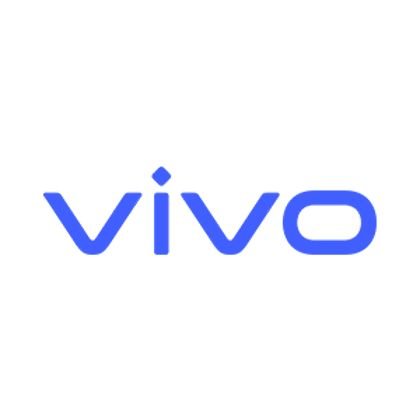
Quantum computing is poised to revolutionize fields such as cryptography, artificial intelligence, material science, and more. As organizations and governments worldwide invest in this cutting-edge technology, the demand for professionals skilled in quantum computing is on the rise. The quantum computing job market is expanding rapidly, creating a wide array of opportunities for those with expertise in quantum mechanics, quantum algorithms, software development, and more. This article explores the most in-demand careers in quantum computing for 2024, providing insights into the key roles, required skills, and potential career paths in this rapidly evolving field.
1. Quantum Software Developer
Overview:
Quantum software developers are responsible for designing, developing, and optimizing software that runs on quantum computers. This includes creating quantum algorithms, developing quantum programming languages, and building quantum applications.
Key Responsibilities:
- Develop quantum algorithms and software for quantum computers.
- Work with quantum programming languages like Qiskit, Cirq, and Q#.
- Optimize quantum code for performance and scalability.
- Collaborate with researchers and hardware developers to create quantum applications.
Required Skills:
- Proficiency in quantum programming languages (e.g., Qiskit, Q#, Cirq).
- Strong background in quantum mechanics and quantum algorithms.
- Experience with classical programming languages (Python, C++, etc.).
- Knowledge of error correction techniques and optimization methods.
Career Path:
- Entry-level positions as quantum software engineers or developers.
- Progression to senior roles, such as lead quantum developer or software architect.
- Potential to move into research and development or leadership roles within quantum-focused organizations.
2. Quantum Algorithm Researcher
Overview:
Quantum algorithm researchers focus on designing and analyzing algorithms that leverage quantum computing’s unique capabilities. Their work involves exploring quantum speedup potential, optimizing existing algorithms, and developing new quantum algorithms for various applications.
Key Responsibilities:
- Develop and analyze quantum algorithms for specific computational problems.
- Research and implement optimization techniques to enhance algorithm efficiency.
- Collaborate with other researchers and engineers to test and validate algorithms.
- Publish findings in academic journals and present at conferences.
Required Skills:
- Deep understanding of quantum mechanics, quantum information theory, and computational complexity.
- Proficiency in mathematical modeling and analysis.
- Experience with quantum programming languages and quantum simulation tools.
- Strong research and analytical skills, with a track record of academic publications.
Career Path:
- Begin as a research associate or junior quantum researcher.
- Progress to senior researcher or principal investigator roles.
- Potential to lead research teams or work in academia as a professor.
3. Quantum Hardware Engineer
Overview:
Quantum hardware engineers design, build, and maintain quantum computers’ physical components, such as qubits, quantum gates, and error-correcting systems. Their work involves overcoming challenges related to quantum coherence, qubit stability, and noise reduction.
Key Responsibilities:
- Design and develop quantum hardware components, including qubits and quantum gates.
- Conduct experiments to test and validate hardware performance.
- Develop error correction techniques and noise reduction strategies.
- Collaborate with software developers to ensure hardware and software compatibility.
Required Skills:
- Expertise in quantum physics, electronics, and cryogenics.
- Experience with hardware design and fabrication techniques.
- Knowledge of quantum error correction and quantum circuit design.
- Proficiency in using lab equipment for quantum experiments.
Career Path:
- Start as a junior quantum hardware engineer or research assistant.
- Progress to senior engineer or hardware development manager roles.
- Potential to lead hardware development teams or become a chief technology officer (CTO) in quantum startups.
4. Quantum Physicist
Overview:
Quantum physicists study the fundamental principles of quantum mechanics and their applications to various fields, including quantum computing. They work on theoretical and experimental research, contributing to developing new quantum technologies.
Key Responsibilities:
- Conduct theoretical and experimental research in quantum mechanics and quantum information.
- Develop and test new theories, models, and simulations related to quantum computing.
- Collaborate with interdisciplinary teams to apply quantum physics to real-world problems.
- Publish research findings in scientific journals and present at conferences.
Required Skills:
- Advanced knowledge of quantum mechanics, quantum field theory, and quantum optics.
- Strong mathematical and analytical skills.
- Experience with quantum simulation tools and software.
- Excellent communication and research skills, with a strong publication record.
Career Path:
- Begin as a postdoctoral researcher or research scientist in academia or industry.
- Progress to roles like senior physicist, research lead, or principal investigator.
- Opportunities to become a professor, head of a research department, or scientific advisor.
5. Quantum Machine Learning Engineer
Overview:
Quantum machine learning (QML) engineers develop algorithms and models that combine quantum computing with machine learning. Their work focuses on leveraging quantum computers to solve complex machine learning problems more efficiently.
Key Responsibilities:
- Develop quantum algorithms for machine learning applications.
- Implement and test QML models on quantum hardware or simulators.
- Optimize quantum models for performance and scalability.
- Collaborate with data scientists and quantum software developers to integrate QML into applications.
Required Skills:
- Proficiency in quantum programming and quantum machine learning frameworks.
- Strong background in machine learning, data science, and quantum mechanics.
- Experience with classical ML tools (e.g., TensorFlow, PyTorch) and quantum tools (e.g., Qiskit, PennyLane).
- Ability to design and implement quantum-enhanced machine learning models.
Career Path:
- Start as a quantum machine learning researcher or engineer.
- Progress to senior roles, such as lead QML engineer or data science manager.
- Opportunities to work in academia, leading AI/ML research teams focused on quantum advancements.
6. Quantum Cybersecurity Specialist
Overview:
Quantum cybersecurity specialists focus on protecting data and communication networks from quantum computing threats. They develop quantum-resistant encryption methods and assess the security implications of quantum technologies.
Key Responsibilities:
- Research and develop quantum-safe cryptographic algorithms.
- Assess the impact of quantum computing on current cybersecurity practices.
- Implement quantum-resistant security protocols and frameworks.
- Collaborate with security teams to ensure robust protection against quantum threats.
Required Skills:
- Strong knowledge of quantum cryptography, quantum key distribution (QKD), and post-quantum cryptography.
- Expertise in cybersecurity principles and encryption algorithms.
- Experience with quantum programming and simulation tools.
- Ability to assess security risks related to quantum computing.
Career Path:
- Begin as a cybersecurity analyst or junior quantum security specialist.
- Progress to senior roles, such as lead cryptographer or cybersecurity architect.
- Potential to become a chief information security officer (CISO) or head of quantum security in large organizations.
7. Quantum Cloud Architect
Overview:
Quantum cloud architects design and manage cloud-based quantum computing platforms, providing scalable and secure access to quantum resources. They work with cloud providers and enterprises to build quantum computing environments.
Key Responsibilities:
- Design and implement cloud architectures that support quantum computing workloads.
- Integrate quantum computing services with classical cloud infrastructure.
- Optimize cloud resources for quantum application performance and scalability.
- Ensure data security and compliance in quantum cloud environments.
Required Skills:
- Expertise in cloud computing (AWS, Azure, Google Cloud) and quantum computing.
- Experience with quantum programming languages and cloud-based quantum platforms.
- Strong understanding of network security, data management, and cloud architecture.
- Ability to design and implement scalable, secure quantum cloud solutions.
Career Path:
- Start as a cloud engineer or quantum computing specialist.
- Progress to senior roles like cloud architect or quantum cloud manager.
- Potential to lead cloud architecture teams or become a director of quantum computing services.
8. Quantum Research Scientist
Overview:
Quantum research scientists work in academic or industrial settings, focusing on fundamental or applied quantum research. They explore new quantum computing applications, materials, or technologies to advance the field.
Key Responsibilities:
- Conduct theoretical or experimental research in quantum computing or related fields.
- Collaborate with interdisciplinary teams on quantum research projects.
- Develop new quantum materials, algorithms, or technologies.
- Publish research findings and apply for research grants.
Required Skills:
- Advanced knowledge of quantum mechanics, quantum computing, and material science.
- Strong analytical, problem-solving, and research skills.
- Proficiency in programming languages and quantum simulation tools.
- Excellent communication and collaboration skills.
Career Path:
- Begin as a postdoctoral researcher or junior research scientist.
- Progress to senior scientist, principal investigator, or lead researcher roles.
- Opportunities to become a professor, research director, or scientific advisor.
9. Quantum Business Development Manager
Overview:
Quantum business development managers focus on promoting quantum technologies, identifying new business opportunities, and building partnerships. They work with startups, research institutions, and established companies to drive the commercialization of quantum computing.
Key Responsibilities:
- Identify new business opportunities and markets for quantum technologies.
- Develop strategic partnerships and collaborations with industry stakeholders.
- Promote quantum products and services through marketing and outreach.
- Work with technical teams to align product development with market needs.
Required Skills:
- Strong understanding of quantum computing and its commercial applications.
- Experience in business development, sales, or marketing in the tech sector.
- Excellent communication, negotiation, and networking skills.
- Ability to work with technical and non-technical stakeholders.
Career Path:
- Start as a business development associate or marketing specialist.
- Progress to senior roles, such as business development manager or director of strategic partnerships.
- Potential to lead business development teams or become a chief commercial officer (CCO) in quantum-focused companies.
10. Quantum Education and Training Specialist
Overview:
Quantum education and training specialists are responsible for developing and delivering educational content, workshops, and courses on quantum computing. They work in academia, corporate training, or educational technology companies.
Key Responsibilities:
- Develop and deliver quantum computing courses, workshops, and training programs.
- Create educational content, including tutorials, videos, and textbooks.
- Collaborate with academic institutions, research centers, and industry partners.
- Promote quantum literacy and skills development among students and professionals.
Required Skills:
- Expertise in quantum computing, quantum mechanics, and related fields.
- Strong teaching, communication, and presentation skills.
- Experience with curriculum development and instructional design.
- Ability to simplify complex concepts for diverse audiences.
Career Path:
- Start as an instructor, teaching assistant, or junior education specialist.
- Progress to senior roles, such as lead instructor, curriculum developer, or education manager.
- Opportunities to work in academia, corporate training, or educational content creation companies.
Conclusion
As quantum computing continues to evolve, the demand for skilled professionals in various quantum disciplines is increasing. The careers listed above represent some of the most in-demand roles for 2024, each offering unique opportunities to contribute to the growth and advancement of quantum technologies. Whether you’re a software developer, researcher, engineer, or educator, there are numerous pathways to explore in the exciting field of quantum computing. By acquiring the right skills and staying informed about the latest developments, you can position yourself for a rewarding career in this cutting-edge industry.







